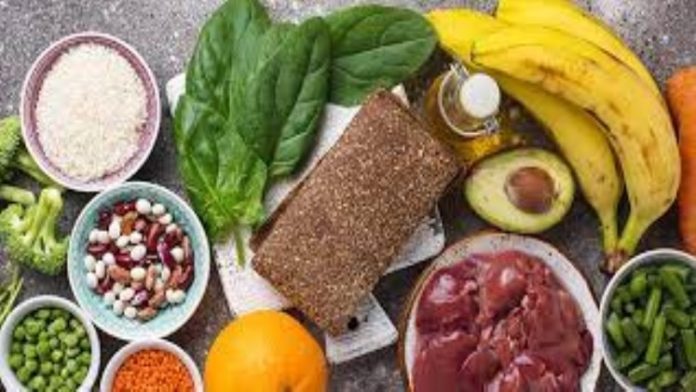Animals’ diets include vitamin B12, often known as cobalamin It may be taken as a supplement or mixed into food. Vitamin B12 is required for the production of red blood cells and DNA. It is also necessary for the development of central nervous system cells.
B12 (cobalamin) binds to protein in our food. The stomach’s hydrochloric acid and enzymes liberate vitamin B12. This allows Vitamin B12 to be absorbed farther down in the small intestine by binding with an intrinsic factor protein. B12-RICH FOODS KIDNEY AND LIVER: Organ meats are a nutrient-dense meal. Lamb’s liver and kidneys, in particular, are high in vitamin B12.
The 3.5 ounces (100-gm)portion liver ofthe lambcontains 3,571 percent of the daily value (DV) for b Vitamins (4Trusted Source). Sardines are delicate marine fish. They are frequently water-canning, oil, or sauce, but are also available fresh.
Sardines are loaded with vitamins and minerals, making them a great source of protein and
1 cup (150 g) cleaned mackerel contains 553 percent of the daily value (DV) for cobalamin (11Trusted Source).
Omega-3 fatty acids, that have been demonstrated to benefit heart health by reducing irritation, are abundant in this fruit.
sardines are also a good source of protein (12Trusted Source). Beef is high in vitamin B12.
Un-grilled flat iron steak (190 grammes) has 467 percent of the daily value for vitamin B12 ().
For selenium and zinc, the same steak provides almost 100% of the recommended value (13Trusted Source).
For more vitamin B12, choose low-fat beef. Grilling or roasting it instead of frying it also works. This keeps vitamin B12 levels high. Enriched cereal: Vegans may benefit from this vitamin B12 source.
Daily use of fortified cereals may help improve vitamin B12 levels, according to studies.
For example, one study revealed that ingesting 1 cup of enriched cereal (240 mL) containing 4.8 mcg Cobalamin levels were increased by 2% of the daily value (DV)..
Fortified cereals containing vitamin B12 should be low in sugar and rich in fibre or whole grains, if possible. Tuna is a popular fish that is high in protein, vitamins, and minerals, among other components.
Vitamin B12 is abundant in tuna, particularly in the dark fibers just beneath the skin’s surface.
453 % of the DV for vitamin A is found in a 3.5-ounce (100-gram) portion of cooked tuna.
The meal size contains lean protein, phosphorus, selenium, vitamin A, and B3.
Cans of tuna are also high in vitamin B12. The daily requirement is met by one can of light tuna (165 grammes). Yeast with added vitamins: Vegan nutritional yeast is abundant in protein, vitamins, and minerals.
In contrast to yeast used to leaven bread and beer, food yeast is grown expressly for use as a food.
No natural vitamin B12 in nutritional yeast? As a result of this, it is often supplemented with vitamin B12.
And, exactly as fortified cereals, nutritious yeast contains synthetic vitamin B12.
The daily intake for vitamin B12 is up to 733 percent in two tablespoons of nutritional yeast (15 grammes).
Vitamin B12 blood levels and indications of vitamin B12 deficiency were improved when raw-food vegans consumed nutritional yeast.

